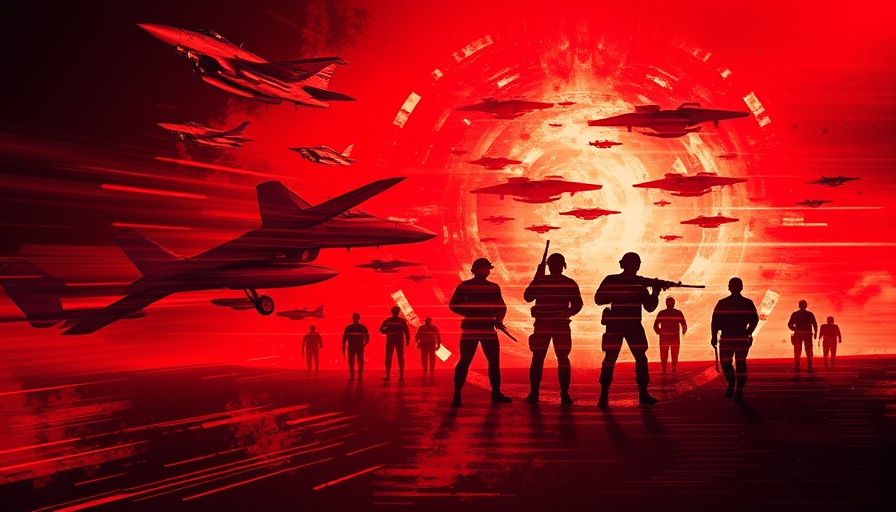
Understanding Iran's Geopolitical Moves Against Israel
In recent months, tensions between Iran and Israel have intensified, triggering a series of strategic responses from both nations. Iran's decision to hit back at Israel, through military posturing and alliances with other regional powers, raises important questions about the effectiveness of these measures. Can these actions truly deter Israel, known for its formidable military power? It’s a complex scenario worth unpacking.
The Historical Context of Iranian-Israeli Relations
The relationship between Iran and Israel dates back to the mid-20th century, marked initially by diplomatic ties that deteriorated following the 1979 Iranian Revolution. Since then, Iran has emerged as a key opponent of Israel, engaging in various forms of conflict including proxy warfare through allies such as Hezbollah in Lebanon and militias in Syria. Understanding this historical backdrop is crucial in interpreting current tensions and military actions.
The Impact of Regional Alliances
One of the significant strategies Iran has employed is the forging of alliances with countries such as Russia and Syria, gaining broader regional support against Israeli operations. This collaboration allows Iran to gain military and logistical strength, presenting a united front that complicates Israel's approach. The possibility of coordinated military efforts among Iran's allies could indeed shift the balance of power, requiring a more nuanced Israeli response.
Diverse Perspectives on Deterrence Strategies
Experts remain divided on Iran's capacity to deter Israel effectively. Advocates of a robust deterrent argue that Iran's missile capabilities and influence over regional proxies could pose a significant threat to Israel's security. Conversely, some analysts question the efficacy of Iran's strategies, highlighting Israel's advanced military technology and intelligence capabilities that could neutralize Iranian threats. This divide underscores the complexity of military deterrence as a strategic concept.
Future Predictions: Escalation or Resolution?
Looking ahead, observers are keen to ascertain whether this cycle of provocation will lead to further military escalation or if mediation efforts could emerge. Recent reports suggest a potential shift in diplomatic efforts among major powers seeking to de-escalate tensions in the region. However, the underlying hostilities are deeply rooted, making the path to resolution fraught with challenges.
The Broader Impact on Middle Eastern Stability
The ongoing turmoil between Iran and Israel has ramifications far beyond bilateral relations; it impacts the entire Middle East. Increased military engagements could destabilize not only Israel and Iran but also surrounding nations, drawing them into the conflict. Understanding these consequences is crucial for policymakers who are attempting to navigate the complexities of Middle Eastern geopolitics.
Conclusion: The Critical Role of Dialogue
As tension surrounding Iran's military responses continues, fostering an environment conducive to dialogue could be the key to avoiding a deeper conflict. Only through discussions that address the underlying issues can both nations hope to establish a framework that promotes peace and stability in the region.
 Add Row
Add Row  Add
Add 



Write A Comment